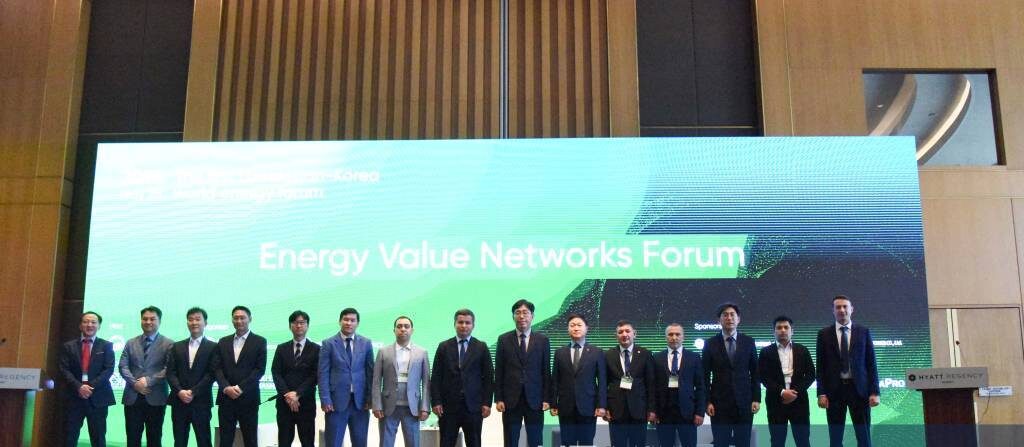WNAM REPORT: The first Uzbekistan – Korea Energy Value Networks Forum was held in Tashkent.
The event, organized in cooperation with the Ministry of Energy of the Republic of Uzbekistan, the Ministry of Trade, Industry, and Energy of the Republic of Korea, and the Korea Energy Agency, was attended by officials from relevant ministries and organizations of both countries, representatives of Ajou University in Tashkent, the Korea Climate Change Institute, the Energy Expert Training Center, as well as scientists and researchers.
Bekzod Ismoilov, Head of the Secretariat of Uzbekistan’s Ministry of Energy, Won Do-yeon, Ambassador Extraordinary and Plenipotentiary of the Republic of Korea to Uzbekistan, and others emphasized that the strengthening bilateral cooperation is opening up broad opportunities for implementing innovative and sustainable energy solutions and for establishing dialogue between the research institutes of the two countries.
“This forum will undoubtedly contribute to strengthening cooperation between the two countries in the energy sector. It is worth noting that since 2019, large-scale reforms have been underway in Uzbekistan’s energy sector – market mechanisms have been introduced, the attraction of private and foreign investment has intensified, and renewable energy sources have been launched. Over the past five years, more than $25 billion in investments have been drawn into the sector, and production capacity has increased by 50 percent. Solar and wind power plants with a total capacity of 4 gigawatts have been commissioned, along with energy storage systems with a capacity of 300 megawatts. At the same time, hydropower plants are under construction, and low- and high-voltage power lines are being modernized. The goal is to increase the share of green energy in total generation to 54 percent by 2030. Currently, projects on digitalization and smart energy are being implemented. At the forum, we exchanged views on these and other achievements”, said Bekzod Ismoilov, Head of the Secretariat of the Ministry of Energy.
At the event, special attention was given to the further development of technological cooperation between the two countries, strengthening investment partnerships, establishing specialist exchanges, and exploring innovative and sustainable energy solutions. Discussions also addressed the transition to environmentally friendly and efficient energy systems.
In conclusion, the parties reached agreements on the implementation of joint projects, the conduct of scientific research, and the enhancement of human resource capacity.


